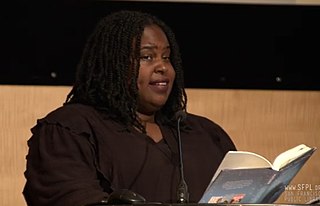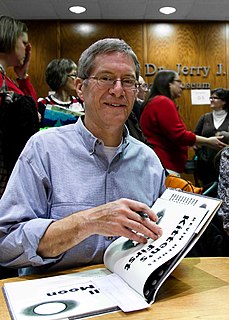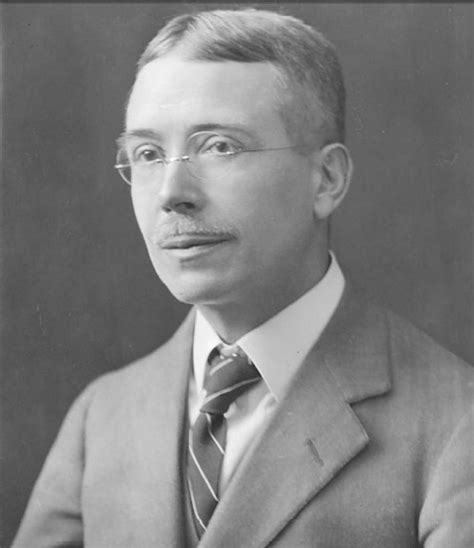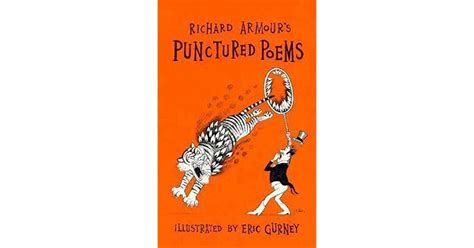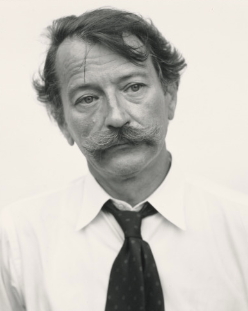Top 233 Manuscript Quotes & Sayings - Page 4
Explore popular Manuscript quotes.
Last updated on April 20, 2025.
But when I say it isn't meant for anyone's eyes, I don't mean it in the sense of one of those novel manuscripts people keep in a drawer, insisting they don't care if anyone else ever reads it or not.The people I have known who do that, I am convinced, have no faith in themselves as writers and know, deep down, that the novel is flawed, that they don't know how to tell the story, or they don't understand what the story is, or they haven't really got a story to tell. The manuscript in the drawer is the story.
I have learned patience, for sure. Pre-publication is a long waiting game, especially for authors of picture books. We write the manuscript, sign the contract, and wait. It takes a while for the art director to find an illustrator and then the illustrator works on the sketches, and depending on those first round of sketches, it could be a few more months before you see a final illustration. I was surprised at how long it takes for all the pieces to come together.
For me - showing a half-finished manuscript is tricky. Just as a bird will get spooked and abandon her eggs if some outside party comes around and makes too much noise or pokes around the nest too intrusively - well, that's what it's like for me if I show work too early and I get a lot of editorial suggestions at the wrong time.
I still love books. Nothing a computer can do can compare to a book. You can't really put a book on the Internet. Three companies have offered to put books by me on the Net, and I said, 'If you can make something that has a nice jacket, nice paper with that nice smell, then we'll talk.' All the computer can give you is a manuscript. People don't want to read manuscripts. They want to read books. Books smell good. They look good. You can press it to your bosom. You can carry it in your pocket.
Suggestions? Put it aside for a few days, or longer, do other things, try not to think about it. Then sit down and read it (printouts are best I find, but that's just me) as if you've never seen it before. Start at the beginning. Scribble on the manuscript as you go if you see anything you want to change. And often, when you get to the end you'll be both enthusiastic about it and know what the next few words are. And you do it all one word at a time.
He loved a book because it was a book; he loved its odor, its form, its title. What he loved in a manuscript was its old illegible date, the bizarre and strange Gothic characters, the heavy gilding which loaded its drawings. It was its pages covered with dust — dust of which he breathed the sweet and tender perfume with delight.
Another editor. That thing behind his ear is his pencil. Whenever he finds a bright thing in your manuscript he strikes it out with that. That does him good, and makes him smile and show his teeth, the way he is doing in the picture. This one has just been striking out a smart thing, and now he is sitting there with his thumbs in his vest-holes, gloating. They are full of envy and malice, editors are.
I wrote the poems in Charms Against Lightning one by one, over almost a decade, and I did not write them toward any theme or narrative. But once I really got serious about putting together a book, I began to see that in fact there were themes across the poems, if only because my own obsessions had brought me back time and again to the same ground. I realized that any ordering of the poems would determine how those themes developed over the manuscript, and how the collection's dramatic conflicts were resolved.
God suffers in the multitude of souls whom His word can not reach. Religious truth is imprisoned in a small number of manuscript books, which confine instead of spread the public treasure. Let us break the seal which seals up holy things and give wings to Truth in order that she may win every soul that comes into the world by her word no longer written at great expense by hands easily palsied, but multiplied like the wind by an untiring machine.
I do believe that the collapse of the traditional media is catastrophic for our democracy, but I wasn't about to mythologize it. I understand its structural flaws, and the lies it tells, which are primarily, but not always, the lies of omission, and I wasn't going to leave that out. Knopf offered to publish the book but they said that an editor was going to "take out all the negativity," which, of course, I wasn't going to accept. I had been paid half my advance, and I had Nation Books buy the manuscript for that half.
I have an office in my house, with a comfy red print reading chair and a soft cream-colored desk. After I walk Winston the Wonder dog and have my breakfast, I head to my office. Every single day. Sometimes, when I'm working on revisions, I print off my manuscript and go to a coffee shop to work. But mostly you can find me in my office.
I write very raw, ugly, illiterate first drafts very quickly (novels are always in first draft in under a year) and then I spend years and years fine-tuning, revising, editing, etc. What inspires me? Who knows. I am not inspired that much. That’s why I write long form fiction - I am not much of a short story writer. Ideas come seldom, but when a good one comes, I really stick to it and see it out. I’m a problem-solver - I've never thrown out an entire manuscript; I've always forced myself to repair it until it was a lovable thing again.
In researching literary agents I did what the books tell you to do: I looked at the acknowledgments page of a book that was similar to mine. Happily, that author thanked his agent. I looked up the agent on the web and found out that he not only represented authors writing books similar to mine, but I knew some of his clients! So, I sent in the manuscript, and they decided to represent it.
This book is intended for use in English courses in which the practice of composition is combined with the study of literature. It aims to give in a brief space the principal requirements of plain English style. It aims to lighten the task of instructor and student by concentrating attention (in Chapters II and III) on a few essentials, the rules of usage and principles of composition most commonly violated. The numbers of the sections may be used as references in correcting manuscript.
Much of an editor's job is in fact pretty nanny-like in nature: in many ways, you're there to protect and defend, to reassure and clean up. What I ask from writers is respect. I want them to respect me enough to turn in a clean draft. I want that draft to be as good as they can make it. I want to feel the thought behind those words. And I want it to be turned in on time. It drives me wild when I get a story that's obviously slapped together, and the same can be said for a manuscript; you should respect your reader enough to give her something that reflects your best efforts.
The syndicates take the strip and sell it to newspapers and split the income with the cartoonists. Syndicates are essentially agents. Now, can you imagine a novelist giving his literary agent the ownership of his characters and all reprint, television, and movie rights before the agent takes the manuscript to a publisher? Obviously, an author would have to be a raving lunatic to agree to such a deal, but virtually every cartoonist does exactly that when a syndicate demands ownership before agreeing to sell the strip to newspapers.
Having a book is somewhat like having a baby, as many woman writers have observed before me: the conception, the long preparation, the wait, the growing heaviness (not of body in this case but of the spirit and the manuscript) toward the end, the initial delight at the sight of the product, fully formed and seemingly perfect, and then the usual postpartum depression. What will people whose opinion I care about, and those whose views I don't value but have weight in the world of reader, think of it?
Today there survives more than 25,0000 partial and complete, ancient handwritten manuscript copies of the New Testament. These hand written manuscripts have allowed scholars and textual critics to go back and verify that the Bible we have in our possession today is the same Bible that the early church possessed 2,000 years ago.
Book burning is a charming old custom, hallowed by antiquity. It has been practiced for centuries by fascists, communists, atheists, school children, rival authors, and tired librarians. Like everything of importance since the invention of the cloak and the shroud, its origins are cloaked in mystery and shrouded in secrecy. Some scholars believe that the first instance of book burning occurred in the Middle Ages, when a monk was trying to illuminate a manuscript. All agree that book burning was almost non-existent during the period when books were made of stone.
Working with a manuscript with that kind of intimacy is kind of like taking a magnification mirror to your pores. Its horrifying but it shows just where the problems are. Of course, I do get bored of the words after a while. I take breaks from them so that we can breathe. And by the time I'm done with my umpteenth regurgitation, I hate the words. They become flavorless chewing gum. Like how really old gum gets once it starts disintegrating in your mouth. Gum that's lost its elasticity and feels like a sweater.
To me, one of the greatest triumphs in doing a book is to tell the story as simply as possible. My aim is to imply rather than to overstate. Whenever the reader participates with his own interpretation, I feel that the book is much more successful. I write with the premise that less is more. Writing is not difficult to me. I read into a tape recorder, constantly dropping a word here and there from my manuscript until I get a minimum amount of words to say exactly what I want to say. Each time I drop a word or two, it brings me a sense of victory!
Edward and I had not had a last grand scene of farewell, nor did I plan one. To speak the word was to make it final. It would be the same as typing the words The End on the last page of a manuscript. So we did not say our goodbyes, and we stayed very close to each other, always touching. Whatever end found us, it would not find us separated.
One of the leading uses of photography by the mass media came to be called photojournalism. From the late 'twenties' to the early 'fifties' what might have been the golden age of this speciality - photographers worked largely as the possessors of special and arcane skills, like the ancient priests who practiced and monopolized the skills of pictography or carving or manuscript illumination. In those halcyon days the photographer enjoyed a privileged status.
During the Qin Dynasty, all books not relating to practical concerns such as agriculture or construction were ordered burned by the emperor to guard against "dangerous thought." Whether accounts of zombie attacks perished in the flames will never be known. This obscure section of a medical manuscript, preserved in the wall of an executed Chinese scholar, might be proof of such attacks.
Take the time you need to learn the craft. Then sit down and write. When you hand over your completed manuscript to a trusted reader, keep an open mind. Edit, edit, and edit again. After you have written a great query letter, go to AgentQuery.com. This site is an invaluable resource that lists agents in your genre. Submit, accept rejection as part of the process, and submit again. And, of course, never give up.
Historically, the Old Charges fall into three groups. The first comprises the two earliest versions, the Regius MS of c.1390 and the Cook MS of c.1420...The second, and largest, group begins with the Grand Lodge No. 1 MS, dated 25 December 1583, and covers all the versions datable before the formation of the premier Grand Lodge in 1717. The third group comprises manuscript and printed versions produced after 1717, the majority of which appear to have been produced as antiquarian curiosities.
I told that girl, in the kindest, gentlest way, that I could not consent to deliver judgment upon any one's manuscript, because an individual's verdict was worthless. It might underrate a work of high merit and lose it to the world, or it might overrate a trashy production and so open the way for its infliction upon the world. I said that the great public was the only tribunal competent to sit in judgment upon a literary effort, and therefore it must be best to lay it before that tribunal in the outset, since in the end it must stand or fall by that mighty court's decision any way.
She praised his book and he embraced her from gratitude rather than lust, but she didn't let go. Neither did he. She kissed his cheek, his earlobe. For months they'd run their fingers around the hem of their affection without once acknowledging the fabric. The circumference of the world tightened to what their arms encompassed. She sat on the desk, between the columns of read and unread manuscript, and pulled him toward her by his index fingers.
If you invent two or three people and turn them loose in your manuscript, something is bound to happen to them -- you can't help it; and then it will take you the rest of the book to get them out of the natural consequences of that occurrence, and so first thing you know, there's your book all finished up and never cost you an idea.
I am a morning person and start work, whether composing, rehearsing, preparing syllabi/tests, or proofing an article or manuscript, early in the morning before the flood of e-mails, phone calls and disturbances, usually by my four cats! I like to do projects that I can become passionate about - women in the arts and mentoring students. Like all of us, if we enjoy what we are doing, it's not work, and we might even get paid for it!
Each story, good and bad, short or long-from that trip to the mall when you saw Santa, to a long, bad illness-they are all a line or a paragraph in our own life manuscript. Two thirds of the way through, even, and it all won't necessarily make sense, but at the end there'll be a beautiful whole, where every sentence of every chapter fits.
That a thing made by hand, the work and thought of a single craftsman, can endure much longer than its maker, through centuries in fact, can survive natural catastrophe, neglect, and even mistreatment, has always filled me with wonder. Sometimes in museums, looking at a humble piece of pottery from ancient Persia or Pompeii, or a finely wrought page from a medieval illuminated manuscript toiled over by a nameless monk, or a primitive tool with a carved handle, I am moved to tears. The unknown life of the maker is evanescent in its brevity, but the work of his or her hands and heart remains.
I felt that there were so many things that could go wrong, in adapting The Hunger Games , and I had this fierce desire to protect this book that she had written. At that time, I read the second book, in manuscript form, and so I saw where she was going with the series. I was able to convince Suzanne [Collins] to trust me with the books.
I started writing the book without realizing I was writing a book. That sounds stupid, but it's true. I'd been trying and failing to make a different manuscript work, and I thought I was just taking a break by writing some short stories. I'm not a very good short story writer - the amazing compression that is required for short stories doesn't come easily to me. But anyway, I thought I'd try to write some short stories. And a structure took shape - I stumbled upon it.
Defeat is for the valiant. Only they will know the honour of losing and the joy of winning I am not here to tell you that defeat is a part of life: we all know that. Only the defeated know Love. Because it is in the realm of love that we fight our first battles – and generally lose. I am here to tell you that there are people who have never been defeated. They are the ones who never fought. They managed to avoid scars, humiliations, feelings of helplessness, as well as those moments when even warriors doubt the existence of God.’’ Manuscript Found In Accra – Paulo Coelho
You need a good editor because every writer thinks he can write a War and Peace, but by the time he gets it on paper, it's not War and Peace anymore; it's comic-book stuff. Your manuscript is both good and original. But the part that is good is not original, and the part that is original is not good.
Learn punctuation; it is your little drum set, one of the few tools oyu have to signal the reader where the beats and emphases go. (If you get it wrong, any least thing, the editor will throw your manuscript out.) Punctuation is not like musical notation; it doesn't indicate the length of pauses, but instead signifies logical relations. There are all sorts of people out there who know these things very well. You have to be among them even to begin.
How is it that, a full two centuries after Jane Austen finished her manuscript, we come to the world of Pride and Prejudice and find ourselves transcending customs, strictures, time, mores, to arrive at a place that educates, amuses, and enthralls us? It is a miracle. We read in bed because reading is halfway between life and dreaming, our own consciousness in someone else's mind.
I kept writing short stories and sending out my manuscript, and it kept coming back like a bad penny. It was rejected all over town, quite often in very complimentary terms, but rejected nonetheless. Agents would return it saying that they loved it but didn't think they could sell it, or they would ask if I could change the collection into linked stories.
Somewhere in the center of my soul, a rusty chain began to unwind. It freed itself, link by link, from where it had rested, unobserved, waiting for him. My hands, which had been balled up and pressed against his chest, unfurled with it. The chain continued to drop, to an unfathomable depth where there was nothing but darkness and Matthew. At last it snapped to its full length, anchoring me to a vampire. Despite the manuscript, despite the fact that my hands contained enough voltage to run a microwave, and despite the photograph, as long as I was connected to him, I was safe.
I had Paterson, and The Art Lover, to guide me for The Tales of Horror (written from 1988-'97 and published in 1999), but I still was so lost, back then, as I tried to understand what I was writing and how it went together. There was a draft of that manuscript that had all these brightly colored paper clips on the pages so I could visualize what I saw as the book's themes and threads - that was a long time ago.
The point is, I can’t tell you how to succeed. But I can tell you how not to: Give in to the shame of being rejected and put your manuscript—or painting, song, voice, dance moves, [insert passion here]—in the coffin that is your bedside drawer and close it for good. I guarantee you that it won’t take you anywhere. Or you could do what this writer did: Give in to your obsession instead.
I'm in love with language again because Luke B. Goebel is not afraid to take us back through the gullet of loss into the chaos of words. Someone burns a manuscript in Texas; someone's speed sets a life on fire; a heart is beaten nearly to death, the road itself is the trip, a man is decreated back to his animal past--better, beyond ego, beautiful, and look: there's an American dreamscape left. There's a reason to go on.
It's no surprise that the droll and (seemingly) all-knowing wizard behind the Chicago Style Q&A puts it all together-entertainingly-for manuscript editors in this real-world guide to job success and survival. The surprise is how urgent it is for every author, client, and boss who works with editors to embrace Carol Fisher Saller's 'subversiveness'-or suffer the next outcome from hell.
I take editing seriously. It's a joy to edit. I always hand a manuscript to several editors and can't wait to get back their notes and see what they've said. I don't criticize myself for making blunders here and there, because it's just natural. You write in chunks, and you may not remember that that sentence you wrote yesterday had the same word repeated three times. I do enjoy that. I love the feeling of repairing. Repairing is really nice.
There are three infallible ways of pleasing an author, and the three form a rising scale of compliment: 1, to tell him you have read one of his books; 2, to tell him you have read all of his books; 3, to ask him to let you read the manuscript of his forthcoming book. No. 1 admits you to his respect; No. 2 admits you to his admiration; No. 3 carries you clear into his heart.
Let's find and remedy all our weaknesses before our enemies get a chance to say a word. That is what Charles Darwin did. ...When Darwin completed the manuscript of his immortal book "The Origin Of Species" he realized that the publication of his revolutionary concept of creation would rock the intellectual and religious worlds. So he became his own critic and spent another 15 years checking his data, challenging his reasoning, and criticizing his conclusions.


